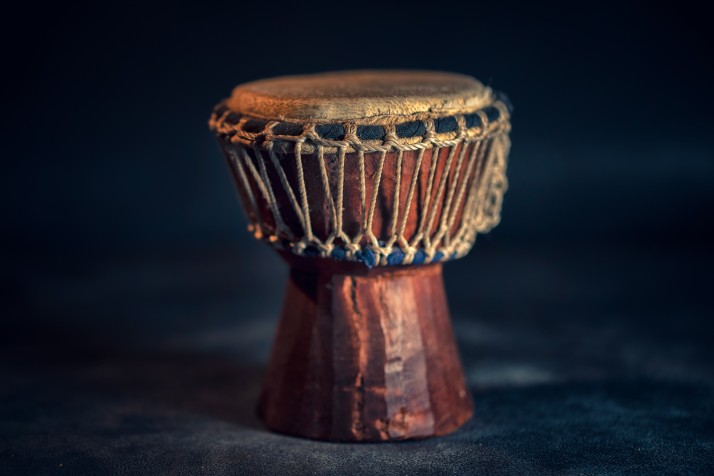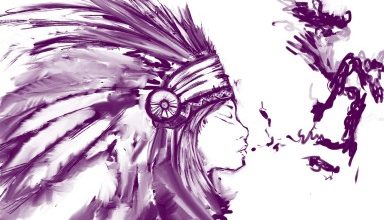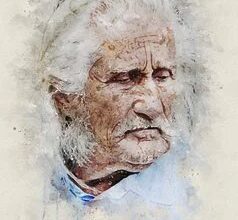
An African Elegy by Ben Okri is a poem comprising 6 stanzas, each containing exactly 5 lines. It is written in the first-person narrative, with the poet using the words “we” and “us”- by doing this, he is conveying that he represents a general population of African individuals, rather than just one single person. As a Nigerian poet and novelist, in this poem, Okri explores what being African means to him. He acknowledges the pain and hardships faced but does so in a manner that highlights their immense courage and humble attitude. Okri employs very straightforward vocabulary, and the simplicity of the format maximizes the power of the message. There are also rhetorical questions inserted every few lines, which makes it seem as though he is speaking directly to the reader- this strengthens the connection between the reader and the poem, and also increases the emotional impact. Okri uses symbolism, imagery and metaphors throughout An African Elegy. The main themes are poverty, hope, destiny, suffering, and faith.
An African Elegy | Summary
An African Elegy by Ben Okri is a deeply touching work that encapsulates the experience of an entire section of humankind in a couple of words. The poet says that we – referring to African individuals- are miracles made by God, to brave the difficulties brought to them through time. They are precious, and someday they will be recognized for their bravery and their sufferings. There are things that hurt them now, but shine when they are happy. The poet asks the reader whether they understand how difficult it is, to face the pain they do. Yet despite their poverty, they have hope- they can spread joy through their sweet singing, and dream of a glorious future.
The poet points out that no matter how much difficulty they go through, they do not blame the air for being too hot, or the fruits when they taste very good, nor do they comment on the lights bouncing in the water. They may be silent, but they express their gratitude for what they have, even when they are in pain. It is this selfless gratitude that makes their melodies so sweet- the air in which their voices are sung to remember their appreciation. The poet says that they believe the universe has great miracles in store for them, blessings that will be revealed slowly when the time comes- after all, they, too, have heard the voices of the dead.
And those voices tell the poet to live life freely but gently and to never lose sight of hope. Because life is still good, and there is still wonder left on the Earth. There is still surprise in the mysteries of the universe, in all the aspects of nature and the great unknown. The ocean is full of songs. And the sky, despite its unending stretch, is not the enemy. One needn’t fear destiny. Though there is not much known about it, it does not work against them- destiny is their friend.
An African Elegy | Analysis
An elegy is a reflective poem. It is often written out of grief, to mourn the dead, but in An African Elegy, Okri takes a slightly different angle- he focuses on insight and destiny. He does discuss the dead towards the end of the poem, but he comes from a place of hope and serenity, rather than grief. The readers may wonder why Okri has titled his poem an elegy if it does not contain the trademark mourning- to this, there are two possible reasons. One is that the word “African” is extremely important. Okri presents an elegy from the perspective of African individuals, hence it is written to match their mindset and worldview. Rather than grieving the dead, the poet depicts the Africans to revere them and trust their voices that everything will be okay. The other reason is that Okri is focusing especially on the reflective aspect.
An African Elegy | Analysis, Lines 1-5
“We are the miracles that God made
To taste the bitter fruit of Time.
We are precious.
And one day our suffering
Will turn into the wonders of the earth.”
The poem begins with the establishment of unity. By starting with the word “we,” the poet conveys to the readers that he is speaking through the perspective of his community, to present the hardships they have faced. “We are the miracles that God made” and “We are precious.” highlights their positive and accepting mindset- they have faith in God and love for themselves, despite their difficulties. By saying that they were made “To taste the bitter fruit of Time.”, Okri is not saying that they were created solely for the purpose of suffering- rather, he implies that nobody else would have had the courage to brave such difficulty. This is further reiterated in the last two lines of the stanza, as the poet is sure that others in the future will wonder how they coped with their tough times, a mark of their endurance and willpower. “To taste the bitter fruit of Time” is a metaphor used to express difficulties happening over a long period.
An African Elegy | Analysis, Lines 6-10
“There are things that burn me now
Which turn golden when I am happy.
Do you see the mystery of our pain?
That we bear poverty
And are able to sing and dream sweet things”
In this stanza, Okri focuses on how the African community is able to find moments of happiness even when they are suffering. “There are things that burn me now, Which turn golden when I am happy.”- the burns symbolize the scars of struggle, while “golden” represents the way even those burns can be turned into a positive outlook by their optimistic mindset. Further, “golden” often symbolizes richness and wealth. Okri may be implying that they find their richness in their heart and happiness- their wealth is not material, but emotional. We then see a question, and though it is rhetorical it gets the readers thinking. Okri rightfully labels it a mystery, for it is very difficult to find people who sing with joy despite the brunt they bear. This is where the themes of poverty and hope begin.
An African Elegy | Analysis, Lines 11-15
“And that we never curse the air when it is warm
Or the fruit when it tastes so good
Or the lights that bounce gently on the waters?
We bless things even in our pain.
We bless them in silence.”
This stanza focuses on the Africans’ personalities– their humility and gratitude. Despite their poverty, they do not look for ways to place the blame on someone else. We also see themes of acceptance here- when the air is warm, they accept the weather rather than curse it. “We bless things even in our pain. We bless them in silence.” This shows their gratitude for the world around them, to the point that they always wish nature to be well. Instead of lamenting their situation, they look for good things and express their appreciation for what they do have.
An African Elegy | Analysis, Lines 16-20
“That is why our music is so sweet.
It makes the air remember.
There are secret miracles at work
That only Time will bring forth.
I too have heard the dead singing.”
Okri provides an explanation as to how they sing so sweetly and happily amid their pain: the sweetness comes from gratitude. We also see a personification with “It makes the air remember,” by giving the air a humanistic feature of being able to remember things. The “secret miracles” referred to here is none other than destiny, which is the main theme of this poem. Nobody knows what will happen in the future, but the usage of the word “miracle” implies that the poet believes it will be positive. This means they still have strong faith that as time goes on, they will find a better life. In the last line of this stanza, the poet mentions the dead– a key aspect of an elegy. He has heard the dead’s voices, giving him messages in the form of a song.
An African Elegy | Analysis, Lines 21-25
“And they tell me that
This life is good
They tell me to live it gently
With fire, and always with hope.
There is wonder here”
The dead reinforce their faith that life is still good. Even though they are enduring great suffering, their predecessors tell them to approach their future with hope. “They tell me to live it gently” is a reminder to not lose their humble and kind nature in the face of difficulty. The word “gentle” symbolizes the optimism and appreciation for life that is carried through the African community, and the dead tell the poet that it is an aspect that should never be forgone. “With fire” symbolizes passion- they should continue to be strong and not give up, an interesting contrast to the word “gently” used just previously. This contrast is made to highlight how the community contains both elements within them- optimism and fierceness- and that is how they have been able to survive so long. The dead also remind the poet that “there is wonder here” which means there is still a reason for them to live- there is more to discover.
An African Elegy | Analysis, Lines 26-30
“And there is surprise
In everything the unseen moves.
The ocean is full of songs.
The sky is not an enemy.
Destiny is our friend.”
The themes of faith and destiny wrap up the concluding stanza. The “unseen” the poet refers to is probably God, and “everything” which he moves is nature and just the ways of the world in general. Nobody knows what God will do next, hence there is still surprise. The vast ocean has so much left undiscovered. It hints that their lives have been predetermined, and their faith in God leads them to trust that those lives will be good. Even if they suffer now, there is hope for a better future. It is this trust and faith which stops their fear of the sky. The sky- unending and unknowable- symbolizes the universe and heaven. The poet says that these aspects should not be feared or hated, as they are not there to harm anybody. The poem ends with the line “Destiny is our friend.” which is a clear confirmation of hope. We see a personification of destiny. Their lives are predetermined by Destiny, who is their friend- and hence, will never let them down.




